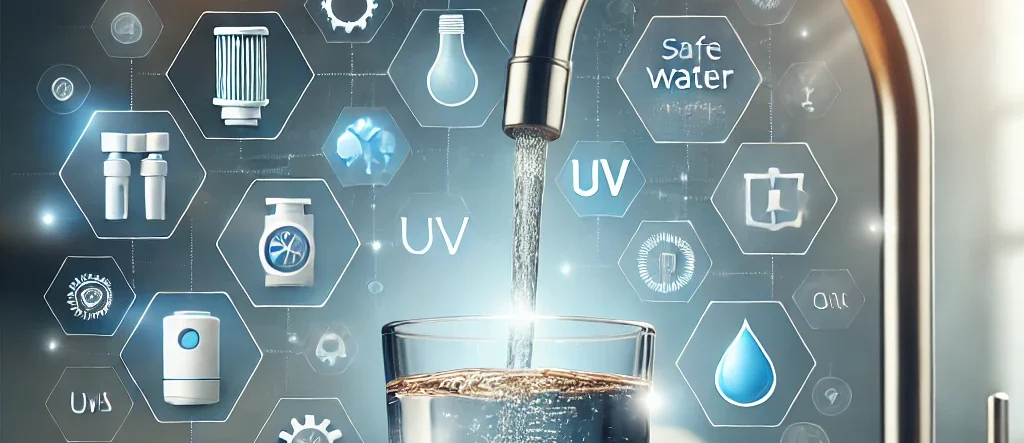Water is essential for life, but not all water sources are safe for drinking. Many people assume that tap water is clean and healthy, but this isn’t always true. Contaminants, chemicals, and impurities often find their way into our water supply. Ensuring water quality requires more than just trusting municipal treatment. This is where www.mackinnonwatersundridge.com/ comes in, offering critical water treatment services to help protect your health and well-being.
Why Water Quality Matters
Water quality directly impacts health. Contaminated water can carry harmful bacteria, viruses, and chemicals. Drinking such water may lead to various health issues, from mild gastrointestinal distress to severe illnesses like liver damage and neurological issues.
In the U.S., water quality standards are regulated by the Environmental Protection Agency (EPA). However, even treated water can pick up contaminants from old pipes and distribution systems. This means that while tap water may meet basic safety standards, it can still contain impurities that pose health risks.
Common Contaminants Found in Tap Water
Various contaminants can pollute tap water. Some are natural, while others stem from human activity. Understanding the risks these contaminants pose is vital.
- Lead: Often from aging pipes, lead is a neurotoxin that can cause developmental delays in children.
- Chlorine: Used as a disinfectant, chlorine can react with organic matter to form byproducts harmful to health.
- Pesticides and Herbicides: Runoff from agricultural areas can introduce these chemicals into the water supply, posing risks to human health.
- Bacteria and Viruses: Pathogens like E.coli can cause severe gastrointestinal issues if present in drinking water.
The Role of Water Treatment Services
Water treatment services go beyond basic filtration. They offer specialized solutions to remove various contaminants and ensure water is safe for drinking. Companies like www.mackinnonwatersundridge.com/ provide expertise and technology to address these issues effectively.
Professional water treatment involves multiple steps to tackle different types of impurities. These steps might include sediment filtration, carbon filtration, reverse osmosis, and UV purification. Each method targets specific contaminants, providing comprehensive water safety.
Key Benefits of Using Water Treatment Services
Water treatment offers several important benefits that protect your health and enhance your water’s quality. Here are the main reasons why investing in water treatment services is beneficial:
- Improved Taste and Odor: Filtering out chemicals like chlorine can improve the taste and smell of tap water.
- Health Protection: Removing heavy metals, pathogens, and other contaminants protects you and your family from waterborne diseases.
- Environmental Impact: Opting for home water treatment reduces the need for bottled water, which helps reduce plastic waste.
- Cost-Effectiveness: Although there is an upfront cost, water treatment is often more affordable in the long run compared to purchasing bottled water.
Understanding Different Types of Water Treatment Systems
Not all water treatment systems are the same. Choosing the right one depends on your specific water quality needs. Here’s an overview of some common systems:
Reverse Osmosis (RO)
RO systems are highly effective for removing contaminants such as salts, nitrates, and heavy metals. These systems use a semi-permeable membrane to filter out impurities, producing clean, safe water for drinking.
Activated Carbon Filters
Activated carbon filters work well for removing chlorine, volatile organic compounds (VOCs), and certain chemicals. They improve taste and odor, making water more palatable without altering its mineral content.
UV Disinfection
UV disinfection systems are ideal for eliminating bacteria and viruses. These systems expose water to UV light, which kills microorganisms without adding any chemicals to the water.
Water Softeners
Water softeners help reduce water hardness by removing minerals like calcium and magnesium. This prevents scale buildup in plumbing and improves the lifespan of appliances.
Signs That You May Need Water Treatment
How do you know if your tap water needs extra treatment? There are some telltale signs to watch out for:
- Unpleasant Taste or Smell: If your water has a metallic, chemical, or foul taste, this could indicate contamination.
- Discoloration: Brown, yellow, or cloudy water often signals the presence of rust or sediment.
- Scale Buildup: If you see white or chalky deposits on faucets or appliances, this indicates hard water, which can be softened with a water softener.
Protect Your Health with Quality Water
Water treatment services are essential for maintaining water safety and quality. Investing in these services helps safeguard against contaminants that can slip through municipal treatment systems.
For those looking to ensure their water is safe, companies like www.mackinnonwatersundridge.com/ offer the expertise and systems necessary to enhance water quality. A small investment in water treatment can lead to long-term benefits for health, taste, and the environment.
Make water safety a priority. Protect yourself and your family by ensuring your tap water is safe and clean. Regular testing, coupled with effective treatment systems, can provide peace of mind and promote overall well-being.


